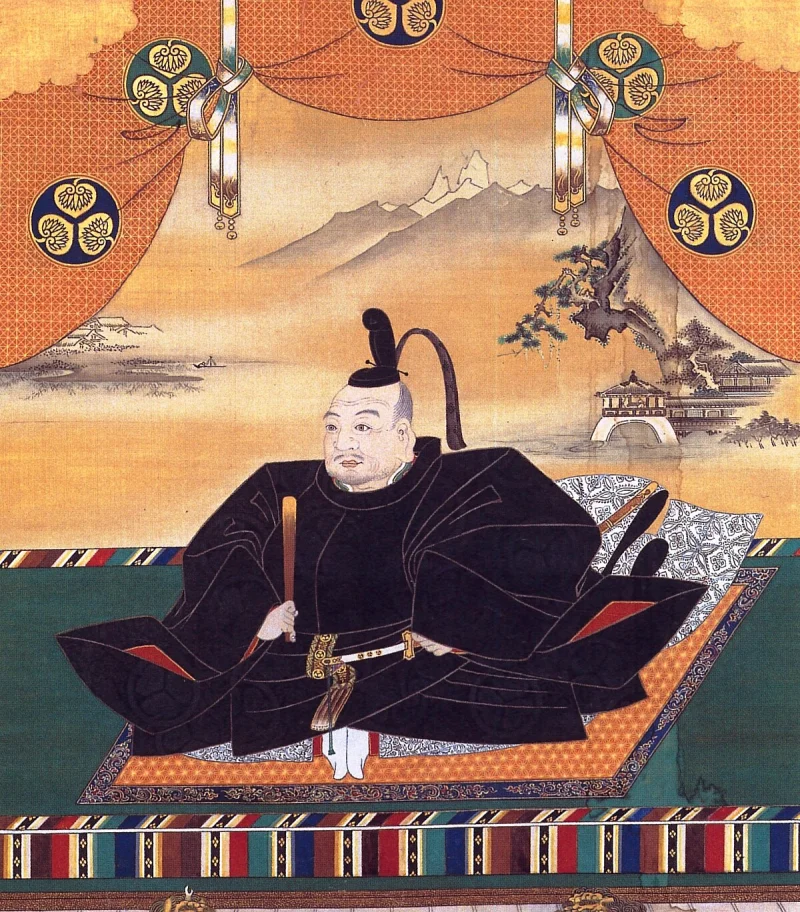Short Summary
Tokugawa Ieyasu was a prominent Japanese shogun who played a crucial role in unifying Japan at the end of the Sengoku period. He founded the Tokugawa shogunate, which ruled Japan for over 250 years, ushering in a period of peace and stability known as the Edo period. Ieyasu is renowned for his strategic acumen and political foresight, which helped solidify his legacy as a pivotal figure in Japanese history.
Early Life & Education
Tokugawa Ieyasu was born on January 31, 1543, in Okazaki Castle, located in Mikawa Province. He was the son of Matsudaira Hirotada, the daimyo of Mikawa, and Odai-no-Kata. During his early years, Ieyasu was sent as a hostage to the Imagawa clan, where he received his education and military training. This experience exposed him to the complexities of political alliances and warfare, significantly shaping his future leadership style. His early life was marked by the tumultuous environment of feudal Japan, which influenced his strategic thinking and ambitions.
Career Highlights
Ieyasu's career began with his return to Mikawa to reclaim his family's domain. He initially served under the Imagawa clan and later allied himself with Oda Nobunaga. After Nobunaga's death, Ieyasu formed a crucial alliance with Toyotomi Hideyoshi, gaining significant influence and territory. In 1600, he emerged victorious at the Battle of Sekigahara, which established him as the preeminent power in Japan. In 1603, he was appointed shogun, marking the beginning of the Tokugawa shogunate. His reign emphasized centralized governance and the stabilization of Japanese society.
Major Achievements
- Established the Tokugawa shogunate in 1603, initiating over two centuries of peace and stability in Japan.
- Successfully unified Japan after the Battle of Sekigahara in 1600, ending the period of warring states.
- Implemented a strict social order and policies that promoted economic growth and cultural development.
- Consolidated power by maintaining a careful balance of authority among the daimyo.
- Promoted foreign trade while maintaining control over foreign influences.
Famous Quotes
- "The strong manly ones in life are those who understand the meaning of the word patience."
- "Life is like unto a long journey with a heavy burden."
Interesting Facts
- Ieyasu was known for his love of falconry and would often engage in the sport.
- He was one of the three unifiers of Japan, alongside Oda Nobunaga and Toyotomi Hideyoshi.
- Ieyasu's leadership style was marked by patience and careful planning.
- He abdicated the shogunate to his son in 1605, but continued to wield significant influence.
- His posthumous deification led to the construction of Nikko Toshogu, a shrine dedicated to him.
Legacy / Influence
Tokugawa Ieyasu's legacy is profound, as he established a shogunate that ensured peace and stability in Japan for over two centuries. His policies laid the groundwork for the Edo period, characterized by economic prosperity and cultural flourishing. Ieyasu's emphasis on centralized governance and social order influenced Japan's political landscape long after his death, making him a central figure in Japanese history.
FAQ
Q: Why is Tokugawa Ieyasu famous?
A: He is famous for founding the Tokugawa shogunate and unifying Japan, bringing about a long period of peace and stability.
Q: What was Tokugawa Ieyasu's leadership style?
A: Ieyasu's leadership style was characterized by patience, strategic planning, and careful management of power dynamics.
Q: What were the main achievements of the Tokugawa shogunate?
A: The main achievements included political unification, economic growth, cultural development, and maintaining peace for over 250 years.
Q: How did Tokugawa Ieyasu rise to power?
A: Ieyasu rose to power through strategic alliances, military victories, and by capitalizing on opportunities presented by the political turmoil of his time.








